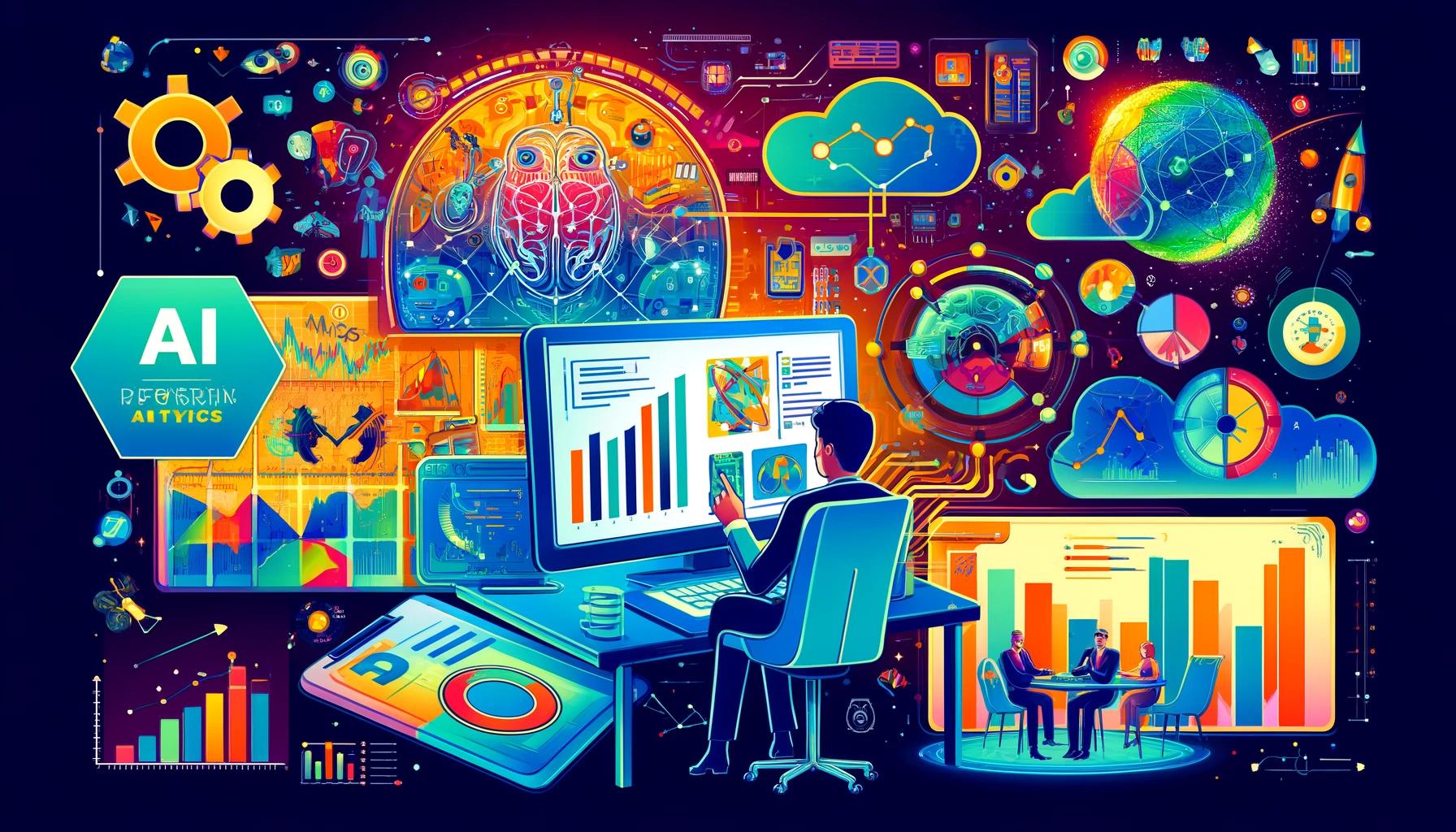Introduction
Artificial Intelligence (AI) has become a cornerstone of modern technology, transforming industries and driving innovation. Among its numerous applications, AI-powered analytics stands out as a game-changer in data-driven decision-making. This article explores the impact of AI on analytics, highlighting its benefits, applications, and future trends. We’ll delve into how AI is reshaping data analysis, offering unprecedented insights, and driving business growth.
The Rise of AI in Analytics
AI-powered analytics leverages machine learning algorithms and data science techniques to analyze vast amounts of data quickly and accurately. Traditional data analysis methods often fall short in handling large datasets, but AI excels in this domain, providing deeper insights and actionable recommendations. By automating complex processes, AI enables organizations to make data-driven decisions with greater precision and speed.
Benefits of AI-Powered Analytics
- Enhanced Accuracy and Efficiency: AI algorithms can process and analyze data more accurately than human analysts, reducing errors and increasing efficiency. This leads to more reliable insights and better decision-making.
- Predictive Capabilities: AI-powered analytics can predict future trends and outcomes based on historical data. This predictive capability helps businesses anticipate market changes, customer behavior, and operational challenges, allowing them to stay ahead of the competition.
- Real-Time Analysis: With AI, organizations can perform real-time data analysis, enabling them to respond swiftly to emerging trends and issues. This agility is crucial in today’s fast-paced business environment.
- Cost Savings: Automating data analysis with AI reduces the need for manual intervention, leading to significant cost savings. Companies can allocate resources more efficiently and focus on strategic initiatives.
- Scalability: AI-powered analytics can handle massive datasets, making it scalable for businesses of all sizes. Whether it’s a small startup or a large enterprise, AI can adapt to the organization’s needs.
Applications of AI-Powered Analytics
Customer Insights and Personalization
AI-powered analytics enables businesses to understand their customers better. By analyzing customer data, companies can identify patterns, preferences, and behaviors, allowing them to deliver personalized experiences. For instance, e-commerce platforms use AI to recommend products based on a customer’s browsing and purchase history, enhancing customer satisfaction and boosting sales.
Fraud Detection and Risk Management
Financial institutions leverage AI-powered analytics to detect fraudulent activities and manage risks. AI algorithms can identify unusual patterns and anomalies in transaction data, flagging potential fraud in real-time. This proactive approach helps in minimizing financial losses and protecting customers.
Healthcare and Medical Research
In the healthcare sector, AI-powered analytics is transforming patient care and medical research. By analyzing patient data, AI can assist in diagnosing diseases, predicting treatment outcomes, and identifying potential health risks. Researchers also use AI to analyze clinical trial data, accelerating the development of new treatments and therapies.
Marketing and Sales Optimization
Marketing teams use AI-powered analytics to optimize campaigns and improve ROI. By analyzing data from various channels, AI can identify the most effective marketing strategies and target the right audience. Sales teams can also benefit from AI by using predictive analytics to forecast sales trends and identify high-potential leads.
Future Trends in AI-Powered Analytics
- Integration with IoT: The integration of AI-powered analytics with the Internet of Things (IoT) will enable real-time data collection and analysis from connected devices. This will enhance decision-making in industries such as manufacturing, logistics, and smart cities.
- Natural Language Processing (NLP): Advances in NLP will allow AI systems to understand and interpret human language better. This will improve data analysis from unstructured sources like social media, customer reviews, and support tickets.
- Edge Analytics: As computing power at the edge increases, AI-powered analytics will be performed closer to data sources, reducing latency and improving real-time decision-making. This is particularly relevant for applications in autonomous vehicles and industrial automation.
- Ethical AI: With the growing use of AI, ethical considerations will become more important. Ensuring transparency, fairness, and accountability in AI-powered analytics will be crucial for gaining trust and avoiding biases in decision-making.
Conclusion
AI-powered analytics is revolutionizing the way organizations analyze data, offering unparalleled accuracy, efficiency, and predictive capabilities. From customer insights and fraud detection to healthcare and marketing optimization, AI is driving innovation across various sectors. As technology continues to evolve, the integration of AI with emerging trends like IoT, NLP, and edge analytics will further enhance its impact. Embracing AI-powered analytics will be essential for businesses looking to stay competitive and thrive in the data-driven future.
For more in-depth information on AI-powered analytics, check out these resources and case studies.

Leave a Reply